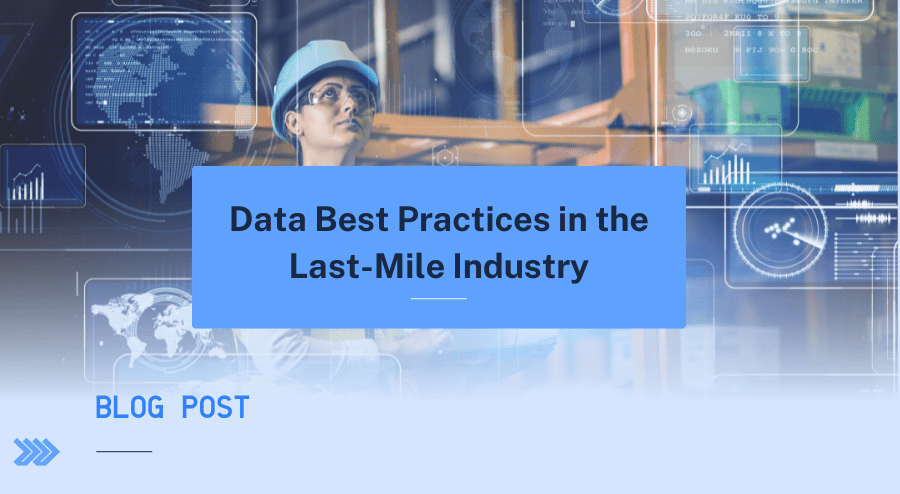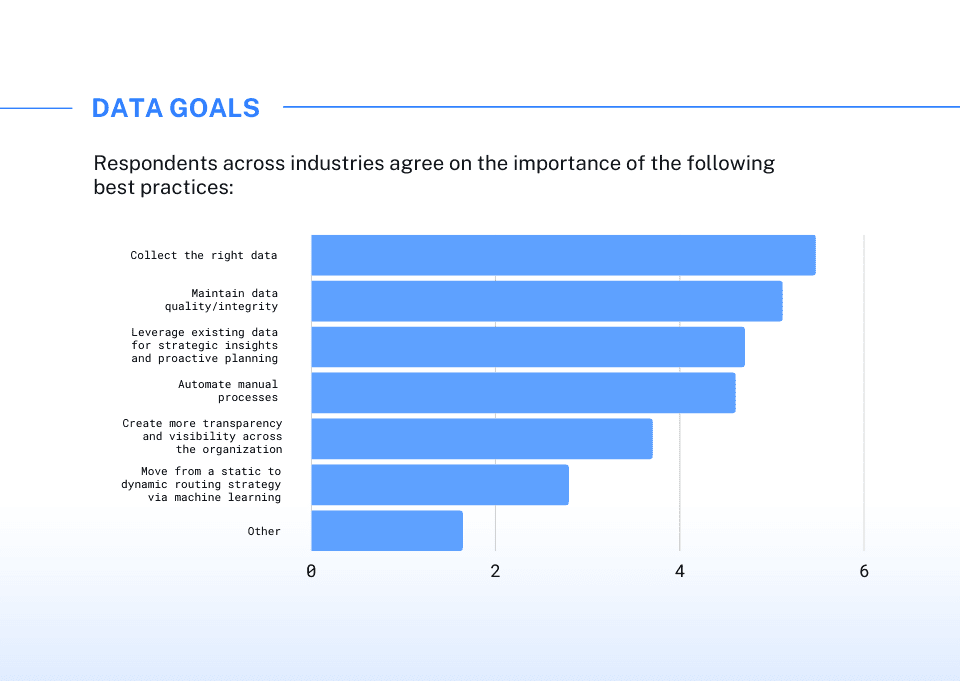Data Best Practices in the Last-Mile Industry.

Wise Systems

In early June, we published a survey to gather primary data around industry leaders’ current practices and future aspirations around data, and the role it plays in their organizations. With strong participation across food, beverage, health care, and other industries, the survey results paint a fascinating picture of managers’ top-of-mind data challenges and corresponding goals.
Here are some of the top findings:
Data is still too manual and time-consuming to manage.
One of the challenges we hear most often from customers is that managing and collecting data is too manual – and as a result, too time-consuming to maintain. In fact, 63% reported that this challenge is their top issue. With nearly 40% of respondents still relying on pen and paper or spreadsheets to manage orders, routing, and dispatching, it stands to reason that data management can quickly become an operational nightmare.

Valuable data includes fleet utilization and capacity, as well as on-time delivery rates.
We wanted to understand which data-derived insights the industry values. When asked about critical KPIs, over 65% of respondents agreed that fleet utilization, capacity, and on-time delivery rates are the most important. With this data – along with fleet mileage and service times – data leaders are able to extract the information they need and operationalize that data to improve their fleet efficiency, performance, and customer service.

Collecting the right data and maintaining its quality are the most important goals.
When it came to goals around data management, there were numerous priorities. The common themes were:
- Accessibility
- Integrity
- Efficiency
- Centralization
According to the results, industry leaders are the most concerned about the availability and readiness of their data, as well as its potential to uncover and create efficiencies across the operation.

Operations may recognize best practices, but not have the means to follow them.
The results reveal that while many leaders acknowledge their challenges around data management, few are currently carrying out best practices. For example:
- 59% reported that while they consider properly identifying and documenting the data in a single easily-accessible location a best practice, they are not currently implementing it, and
- 58% stated that frequently assessing the availability and accuracy of their data is a best practice – but not one that they are following.

Final thoughts
Thank you to the numerous survey respondents for their candor and organizational insights. We are inspired to see how more leaders are evaluating their current practices and systems to seek efficiencies and improvements across their operations. If you’d like to discuss the role your data has on the future of your organization, we’re all ears.




